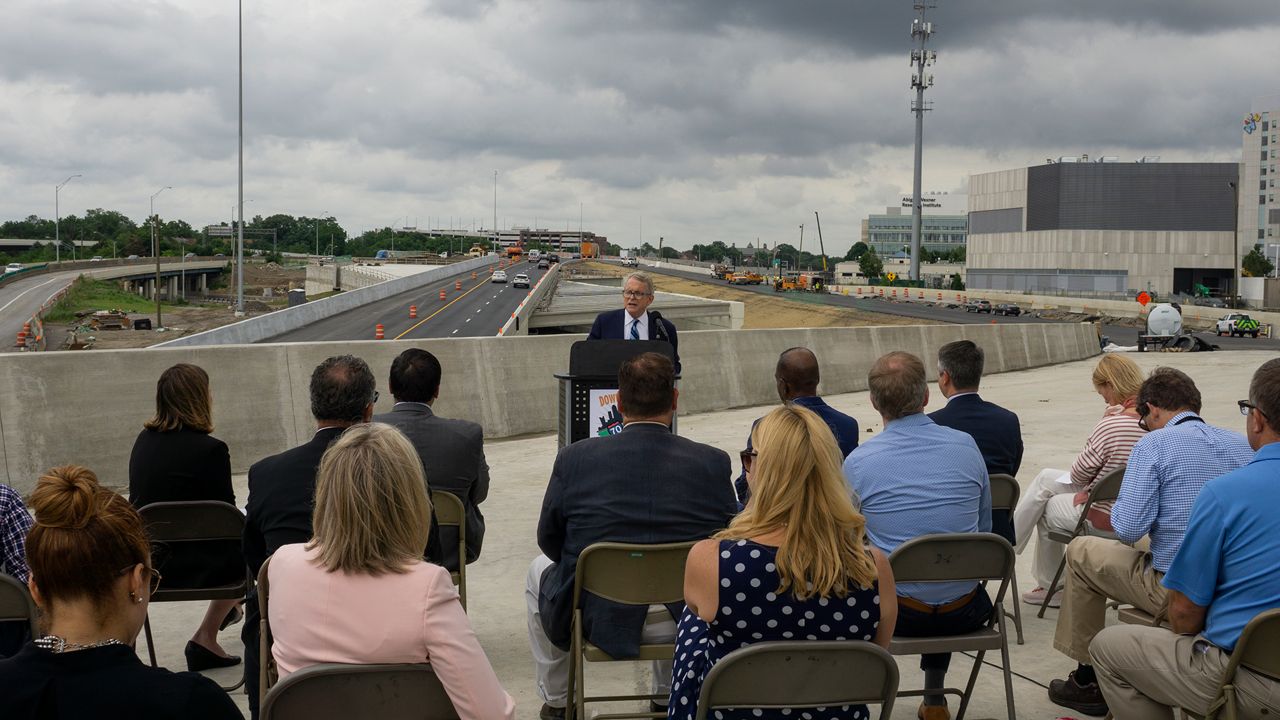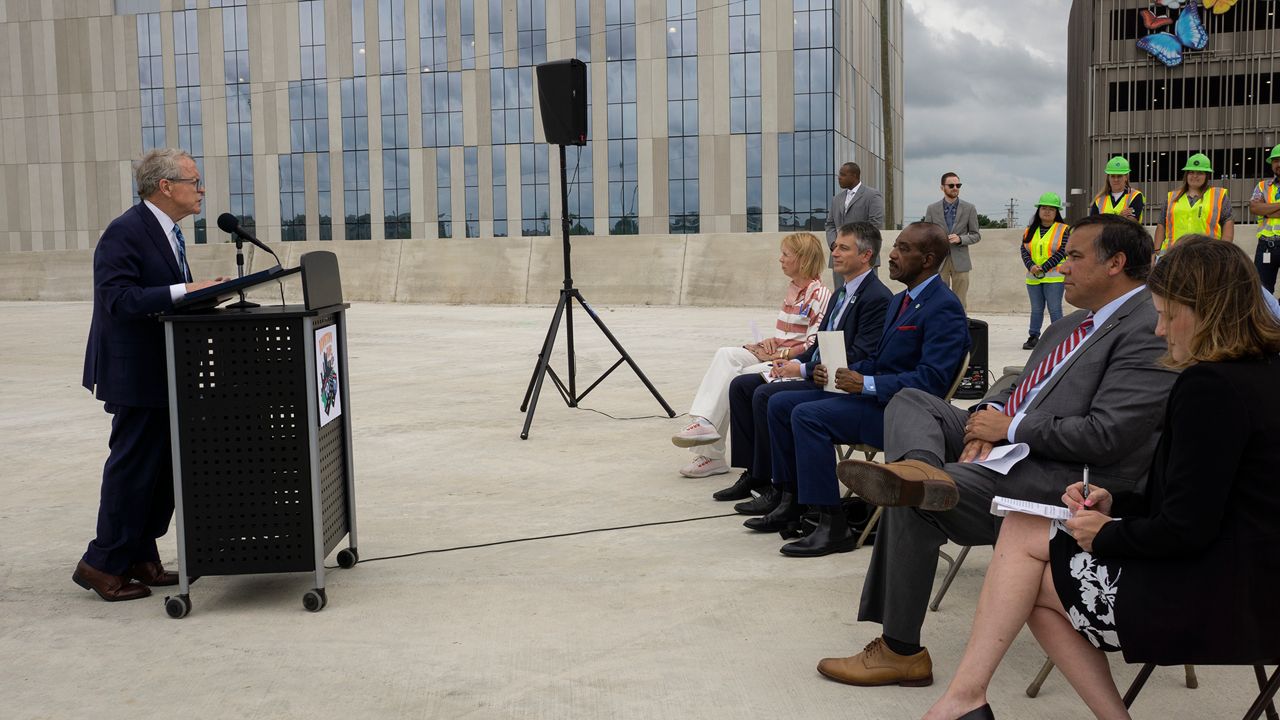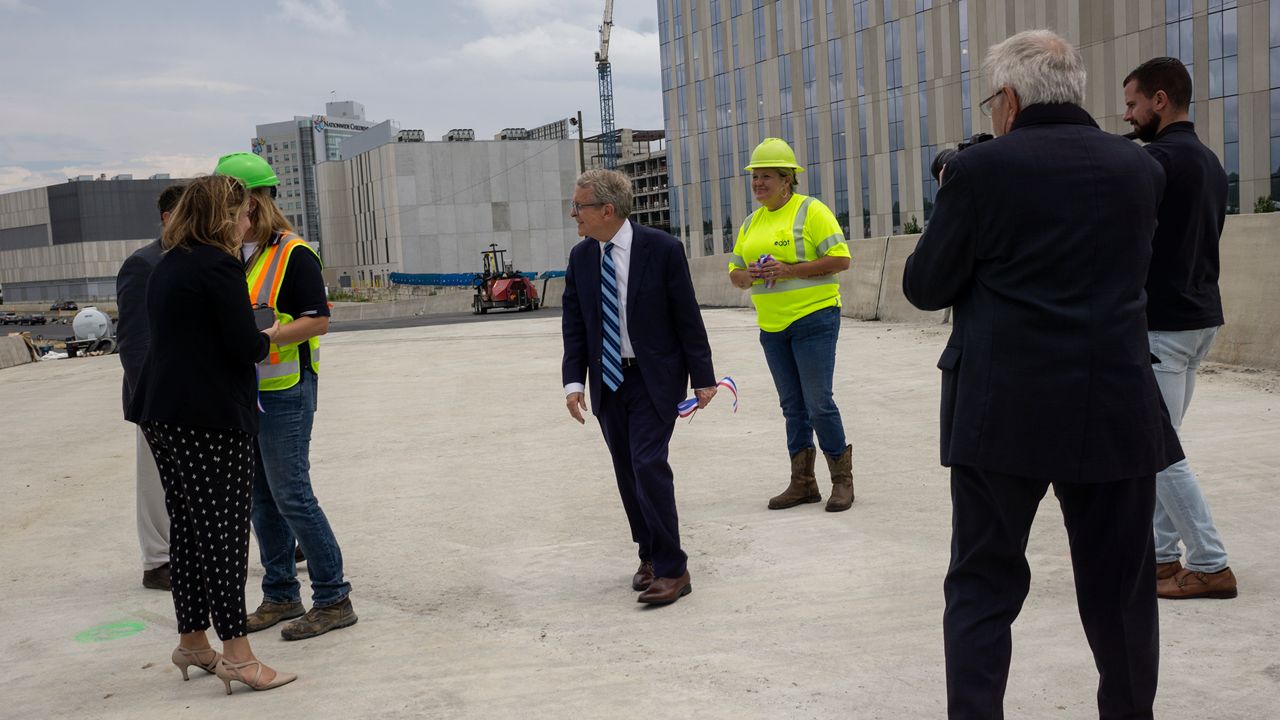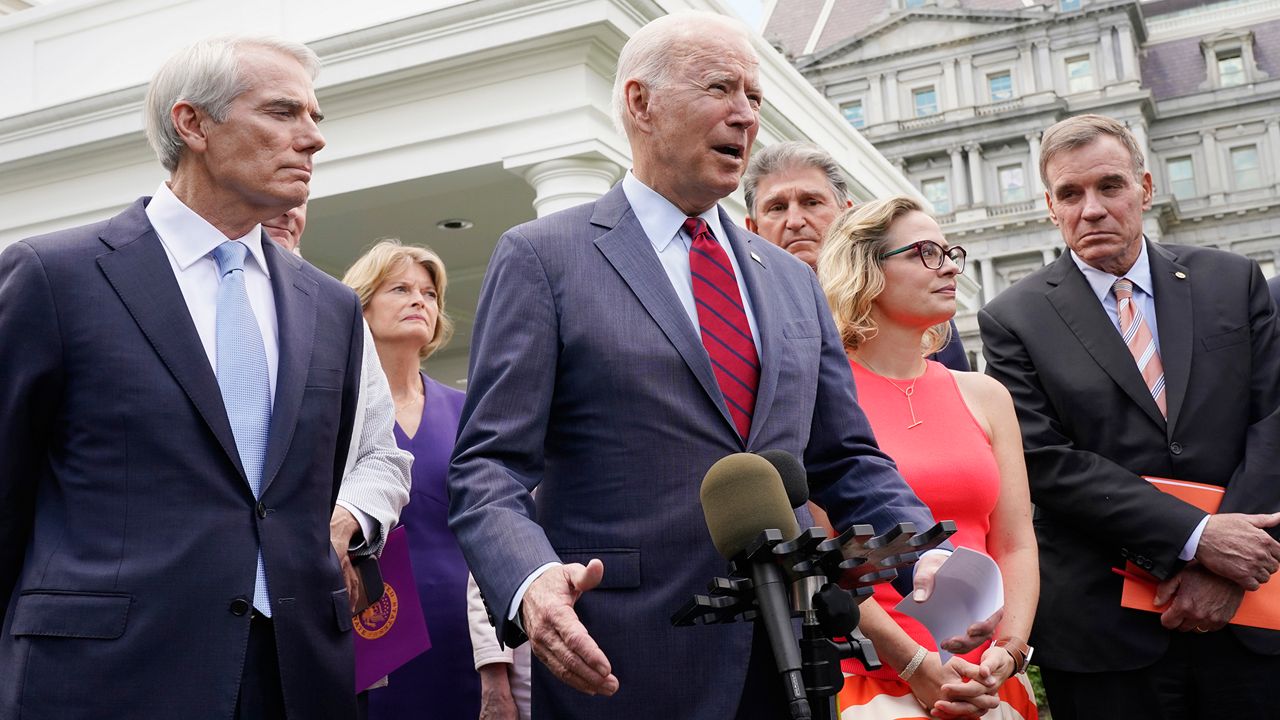COLUMBUS, Ohio — Gov. Mike DeWine is calling on the Food and Drug Administration to fully authorize the COVID-19 vaccines, he said during a media availability in Columbus Tuesday afternoon.
What You Need To Know
- The governor said full authorization of the vaccines would save lives
- DeWine: Ohio to announce a new vaccine incentive program soon
- State officials expect the delta variant to become dominant before August
In addition to the authorization changes he would like to see at the federal level, DeWine said there’s an opportunity for Ohio to make an impact on vaccinations at the state level with a new vaccine incentive program.
He pledged to announce the state’s second round of incentives within the next week or so.
The governor said full authorization of the vaccines would encourage Ohioans who are hesitant about the immunizations to get a shot.
“It is past time for the FDA to take into account that hundreds of millions of people have received these vaccines, and to move it from an emergency basis over to a regular basis,” DeWine said. “Lives are frankly at stake.”
State officials say it’s imperative to stimulate vaccinations now, with the delta variant of COVID-19 making its presence known in Ohio.
Ohio’s Chief Medical Officer Dr. Bruce Vanderhoff recently informed the governor that the variant would become dominant in Ohio “at least by the end of this month," DeWine said.

The governor is facing a Wednesday deadline to sign or veto a bill passed by the Ohio legislature that would ban public schools from requiring a vaccine that is not fully authorized.
In response to a question from Spectrum News 1 regarding his decision on the legislation, HB 244, the governor said he had no comment other than to stress that the COVID-19 vaccines ought to have FDA authorization.
“That will help us in Ohio and across the country to get more and more people vaccinated. It's time for them to do that, and I would just plead with them to do that. It's very, very important,” he said. “It won't convince everybody, but there are people out there we know who will be convinced if that’s done.”
The coronavirus vaccines available in the U.S. have received emergency use authorization. However, they have yet to be fully authorized.
DeWine took questions from reporters after a ribbon-cutting unveiling of the new Fulton Street ramp, which connects downtown Columbus to I-70 East. The project is part of a $1.4 billion project to rebuild the I-70/71 corridor in the city.
The governor said he is encouraged by the state’s progress that has led to a 59% vaccination rate among adults, but he said he thinks Ohio needs to vaccinate another million people to be in a better spot. DeWine is concerned that some parts of the state only have 30-35% vaccination rates, making them particularly vulnerable.
During a recent conversation with Columbus Public Health Commissioner Dr. Mysheika Roberts, DeWine said the two discussed the city’s vaccine incentive program, which rewards $100 to residents who get the shot.

DeWine hinted that the statewide incentices might be more similar to the city of Columbus program than to Ohio’s Vax-a-Million lottery. Experts advising the governor recommended that the state make smaller monetary amounts available to a large number of people. The thinking is that some people who weren’t motivated by Vax-a-Million might respond to a different type of reward.
“One incentive is a big prize. We did that. We got very good results for two weeks… The other kind of incentive that the experts tell us is the smaller amount, but still a significant amount of money that you spread, so that there’s more chance to win,” he said. “So those are the two, and we’ve tried one.”
Columbus reported a 100% increase in vaccinations the first week the program began, the governor said.
However, the price tag to match the dollar amount of Columbus' incentives statewide would not be realistic, he said.
“We probably need another million people to be vaccinated, so that would be, if you did it for everybody, that’d be $100 million. That’s probably not sustainable,” he said.






